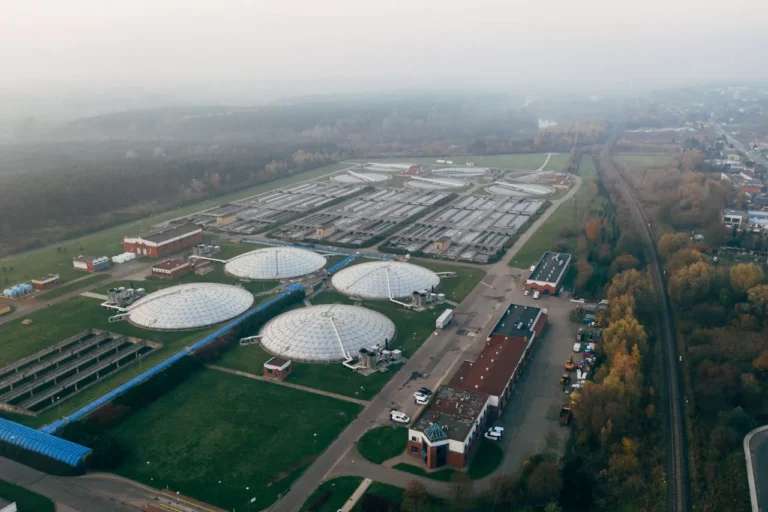
Syensqo and University Mohammed VI Polytechnic (UM6P) Launch Joint AI Lab to Drive Innovation in Sustainable Industry
Syensqo and the University Mohammed VI Polytechnic (UM6P) today formalized a groundbreaking partnership by signing a collaborative agreement at the UM6P campus in Benguerir. This milestone marks a significant step forward in their shared mission to bridge the gap between scientific research, industrial application, and societal impact. Both institutions emphasized that artificial intelligence (AI), when applied thoughtfully and responsibly, holds the potential to address real-world challenges while accelerating the transition toward more sustainable, efficient, and competitive industrial systems.
The partnership is structured around three foundational pillars: artificial intelligence, advanced materials, and sustainability. By combining complementary areas of expertise, Syensqo and UM6P aim to convert cutting-edge research into tangible industrial applications. To facilitate this, Syensqo has established a dedicated office on the UM6P campus in Benguerir. This new space provides a collaborative environment where Syensqo’s engineers and scientists can work side by side with UM6P’s researchers, doctoral students, and undergraduates. This physical and intellectual proximity is designed to enhance the integration of academic insights into industrial processes, fostering a culture of experimentation, agility, and rapid innovation.
At the heart of this collaboration is the newly inaugurated Syensqo AI Lab, housed within UM6P’s innovation ecosystem. The lab is co-led by Lamiae Azizi, Professor at UM6P’s College of Computing and Director of the Accelerated Research Center in AI, alongside Vincent Colegrave, Head of Syensqo.ai. The lab is conceived as a “translational space” where scientific research intersects with practical industrial challenges. It combines UM6P’s deep expertise in advanced AI methodologies with Syensqo’s longstanding experience in materials and chemical sciences. The goal of this joint venture is to develop next-generation agentic AI technologies tailored to chemistry and materials science. By doing so, the lab seeks to advance the frontiers of generative AI systems while simultaneously creating advanced materials solutions for diverse industrial sectors.
This partnership goes beyond the creation of the AI Lab. Syensqo and UM6P have outlined plans to extend their collaboration across multiple research and development domains. Through continuous joint exploration by scientific and technical teams, the two institutions aim to identify new opportunities for innovation. The scope of the collaboration also encompasses executive training and student development programs. By combining academic and industrial expertise, Syensqo and UM6P intend to equip students with hands-on experience addressing real-world industrial problems. These initiatives are designed to foster technical proficiency, leadership qualities, and innovation capabilities, preparing the next generation of scientists, engineers, and industry leaders for emerging technological and environmental challenges.

At Syensqo, we believe that the future of sustainable industry will be shaped by the intelligent fusion of materials science and artificial intelligence. With this lab, we aim to turn this vision into action — accelerating innovation, empowering young talent, and creating solutions that have real impact on people, and the planet.
Echoing this sentiment, M. Hicham El Habti, President of UM6P, emphasized the practical outcomes of research:
At UM6P, we measure the value of research by its ability to create tangible solutions. Our collaboration with Syensqo allows us to integrate advanced AI with industrial applications, transforming laboratory discoveries into technologies that can enhance efficiency, reduce environmental impact, and generate new economic opportunities.
The official signing ceremony was attended by representatives from both institutions, including researchers, engineers, and students. Several UM6P students from the College of Computing, who had completed internships at Syensqo, shared their experiences during the event. They underscored how the partnership provided unique exposure to advanced industrial environments, offering them practical insight into AI-driven materials research and development. These interactions highlight the dual benefits of the collaboration: accelerating scientific innovation while cultivating a new generation of skilled professionals equipped to tackle tomorrow’s industrial and environmental challenges.
This agreement represents a new chapter in the longstanding collaboration between Syensqo and UM6P. Both institutions were early co-partners in Climate Impulse, an ambitious initiative led by explorer and environmentalist Bertrand Piccard to develop the world’s first hydrogen-powered aircraft capable of flying non-stop around the globe. Their joint involvement in this pioneering project reflects a shared conviction: science and innovation, when guided by experimentation, data, and industrial know-how, can generate meaningful solutions to global sustainability challenges. The Syensqo-UM6P AI Lab extends this ethos by providing a platform to explore the intersection of AI, advanced materials, and sustainable industry on an ongoing basis.
The lab is expected to focus on several key areas of research. In AI, the team will work on agentic and generative models capable of solving complex problems in chemistry and materials science. In parallel, researchers will explore the development of advanced materials with applications ranging from energy-efficient manufacturing to environmentally friendly chemical processes. By integrating AI-driven modeling and predictive analysis with materials science, the lab seeks to accelerate discovery cycles, reduce resource consumption, and optimize industrial processes. This dual focus underscores the commitment of both institutions to innovation that is not only technologically advanced but also socially and environmentally responsible.
Education and talent development form a central pillar of the collaboration. Syensqo and UM6P are designing programs that allow students, doctoral candidates, and early-career researchers to gain hands-on experience with cutting-edge AI and materials science projects. These initiatives include joint workshops, collaborative research projects, and internship opportunities at Syensqo’s industrial facilities. By engaging with real-world challenges, participants will develop technical expertise, problem-solving skills, and a deep understanding of how AI and materials science intersect to drive sustainable industrial transformation.
Moreover, the collaboration has significant potential to influence the wider industrial landscape. By demonstrating how AI can optimize materials development and industrial processes, the partnership aims to encourage broader adoption of sustainable practices across sectors such as chemicals, energy, and manufacturing. Both institutions envision a ripple effect where knowledge, technology, and trained professionals generated within the lab benefit industries across Morocco, Africa, and the global market.
Innovation is not an abstract concept; it is a force that can change industries, improve efficiency, and protect the environment. Through this collaboration, we are committed to making AI and materials science work hand in hand to build solutions that matter.
President El Habti also highlighted the broader societal impact of the partnership:
By connecting research to industrial priorities, we are fostering an ecosystem where ideas translate into action. The lab is a place where students, researchers, and industry professionals come together to tackle challenges that have tangible effects on communities, the economy, and the environment.
The Syensqo AI Lab is strategically positioned within UM6P’s innovation ecosystem, ensuring access to state-of-the-art facilities, high-performance computing resources, and a vibrant academic community. This environment encourages interdisciplinary collaboration, enabling AI researchers, materials scientists, and chemical engineers to work seamlessly across projects. The physical and intellectual proximity between the two institutions is expected to accelerate experimentation, shorten innovation cycles, and deliver practical solutions at a pace that meets industrial demands.
In addition to research and education, the lab will focus on public engagement and knowledge dissemination. Through conferences, seminars, and collaborative publications, Syensqo and UM6P aim to share their findings with the broader scientific community, industry stakeholders, and policymakers. This open approach ensures that innovations developed within the lab are accessible and can be translated into solutions that benefit society as a whole.
The agreement between Syensqo and UM6P is more than a partnership—it represents a shared vision for the future of sustainable industry. By leveraging the complementary strengths of both institutions, the collaboration seeks to pioneer new AI technologies, develop advanced materials, and nurture a generation of professionals capable of leading the transition toward environmentally responsible, high-performing industrial systems.
As both institutions look ahead, the potential for expansion and new initiatives remains vast. Future plans may include cross-disciplinary projects in energy, biotechnology, and circular economy solutions, all anchored in the core philosophy of integrating AI with applied science for societal benefit. This strategic approach positions the Syensqo-UM6P partnership as a model for how industry and academia can co-create solutions to global challenges while fostering local talent and innovation ecosystems.
In summary, the launch of the Syensqo AI Lab marks a transformative moment in the collaboration between Syensqo and UM6P. Through joint research, talent development, and translational innovation, the partnership aims to redefine how AI and materials science intersect to create sustainable industrial solutions. By turning academic insights into actionable industrial applications, this collaboration not only advances technology but also empowers future generations of innovators to tackle the pressing challenges of our time.







